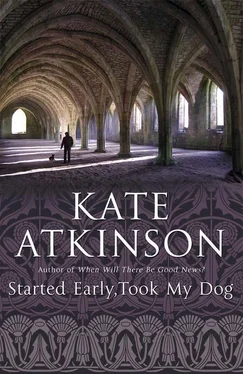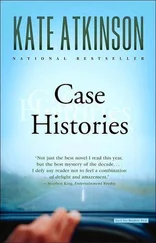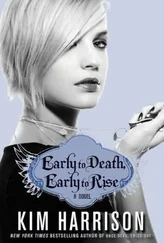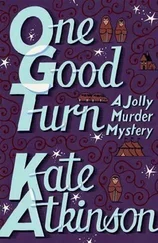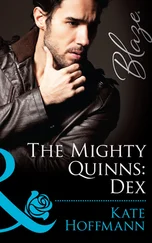‘ Arcadia ’ was a word that Julia had taught him one lost weekend in Paris that felt like a lifetime ago now. They were visiting the Louvre and she had pointed out Poussin’s painting of Les Bergers d’ Arcadie and the tomb it depicted with the words ‘ Et in Arcadia ego ’. ‘Open to interpretation, of course,’ she said. ‘Does it mean death is here, even in this simple paradise, i.e. there’s no escaping it, chum – a memento mori , if you will, “As you are now so once was I” kind of thing – or does it mean the person who is dead also once enjoyed the good life, which is the same message really. Either way, we’re all doomed. Only of course – irritatingly – it got all mixed up in that Da Vinci Code piffle.’
Julia might have been instinctively attracted to all kinds of nonsense but at heart she was a classicist. She was also very wordy and Jackson had stopped listening to her long before she finished explaining. Nonetheless, he had been struck by the poignancy of the inscription.
And now he was looking for his own Arcadian bower. What had begun as a rather vague search for Tessa had morphed into a quite different purpose. He was a man on a real-estate mission. He was looking for a peg to hang his hat on, an old dog looking for a new kennel, one untainted by the past. A fresh start. Somewhere there was a place for him. All he had to do was find it.
He had saved the best to last. North Yorkshire, God’s own county, the gyre he had been circling around all this time. None of his other stops on his peregrinations could exert the same pull on the lodestone of his heart as North Yorkshire did. Of course, Jackson was a West Riding man himself, made from soot and rugby league and beef dripping, but that didn’t mean he was about to go and live there. The last place he intended to end up in was the place he had started from, the place where his entire family lay restlessly in the earth.
He set the SatNav for the heart of the sun, or, to be more accurate, York. The voice on Jackson ’s SatNav was ‘Jane’, with whom he had been in a contentious relationship for a long time now. ‘Why not just mute her?’ Julia said reasonably. ‘In fact, why do you need her at all, you’re always going on about what a good sense of direction you’ve got.’ He did have a good sense of direction, he said defensively. He just liked the company.
‘Get a life, sweetie.’
‘Go east, old man,’ he had muttered to himself as he tapped his coordinates into Jane and prepared to cross the spine of the Pennines again and return to the cradle of civilization.
Slightly south-east, Jane corrected him silently.
He had been trying to visit all of the Betty’s Tea Rooms – Ilkley, Northallerton, two in Harrogate, two in York. A genteel itinerary that would have done a coachload of elderly ladies proud. Jackson was a big fan of Betty’s. You could guarantee a decent cup of coffee in Betty’s, but it went beyond the decent coffee and the respectable food and the fact that the waitresses all looked as if they were nice girls (and women) who had been parcelled up some time in the 1930s and freshly unwrapped this morning. It was the way that everything was exactly right and fitting. And clean.
‘The older you get, the more like a woman you become,’ Julia said.
‘Really?’
‘No.’ Long after their relationship had ended, after Julia had herself married and had the child which for a long time she had denied was Jackson’s, she was still chattering away in his brain.
If Britain had been run by Betty’s it would never have succumbed to economic Armageddon. Over a pot of house blend and a plate of scrambled eggs and smoked salmon in the café in St Helen’s Square in York, Jackson fantasized about being governed by a Betty’s oligarchy – Cabinet ministers in spotless white aprons and cinnamon toast all round. Even Jackson in his most aggrandizingly masculine moments would have to agree that the world would be a better place if it was run by women. ‘God created Man,’ his daughter Marlee said to him a few weeks ago, and for a moment Jackson thought that her adolescent pessimism had made her turn to some kind of fundamentalist Christian religion. She registered the look of alarm on his face and laughed. ‘God created Man,’ she repeated. ‘And then he had a better idea.’
Ha, ha. Or LOL, as his daughter would have said.
In York he had spent many hours in the great cathedral train shed of the National Railway Museum where he paid tribute to the Mallard , Yorkshire-built and the fastest steam train in the world, a record that could never be taken away from her. Jackson ’s heart had swelled with pride at the sight of the beautiful shining blue flanks of the engine. Not a day went by that he didn’t mourn the loss of engineering and industry. This was no country for old men.
As well as teashops Jackson had also discovered an unlooked-for delight in bagging the ruined abbeys of Yorkshire on his journey – Jervaulx, Rievaulx, Roche, Byland, Kirkstall. Jackson ’s new pastime. Trains, coins, stamps, Cistercian abbeys, Betty’s – all part of the semi-autistic male impulse to collect – a need for order or a desire to possess, or both.
He still needed to collar Fountains, the mother of all abbeys. Years ago (decades ago now) Jackson had been on a school trip to Fountains Abbey, a rare thing, Jackson hadn’t gone to the kind of school that had outings. All he could remember was playing football amongst the ruins, until a teacher put a stop to it. Oh yes, and trying to kiss a girl called Daphne Wood on the back seat of the coach on the way home. And receiving a thumping for his pains. Daphne Wood had a tremendous right hook. It was Daphne Wood who had taught him the value of getting in there with one swift, mean blow rather than prancing around with a duellist’s finesse. Jackson wondered where she was now.
Rievaulx was sublime but his favourite abbey so far was Jervaulx. Privately owned, with an honesty box at the gate and no English Heritage branding, the ruins had touched his soul in some inarticulate and melancholy place, the nearest thing to holiness for an atheistic Jackson. He missed God. But then who didn’t? As far as Jackson was concerned, God slipped out of the building a long time ago and he wasn’t coming back, but, like any good architect, he had left his work behind as his legacy. North Yorkshire had been designed when God was in his pomp and each time that Jackson came here he was struck anew by the power that landscape and beauty had over him these days.
‘It’s your age,’ Julia said.
Of course, these were the very same rich and powerful abbeys that in the Middle Ages farmed the sheep, the golden fleeces which provided the foundation of the wool trade and England’s wealth and which led in turn to the Satanic mills of the West Riding, and thence to poverty, overcrowding, disease, child exploitation on levels beyond belief and the death and destruction of the dream of Arcadia. For want of a nail. Those mills were museums and galleries now, the abbeys in ruins. The world turns.
The day that Jackson visited Jervaulx it had been deserted apart from the everlasting sheep (nature’s lawnmowers) and their fat lambs and he had wandered amongst the peaceful stones where wild flowers sprang from between the cracks and wished that his sister was laid to rest in a place like this instead of the mundane municipal cemetery that had been her last stop on earth. He had unfinished business there, a promise never given to a dead sister to avenge her senseless death. He supposed Niamh would always be calling him home, the siren song of the dead, for the rest of his life.
‘All roads lead home,’ Julia said.
‘All roads lead away from home,’ Jackson said.
Читать дальше
